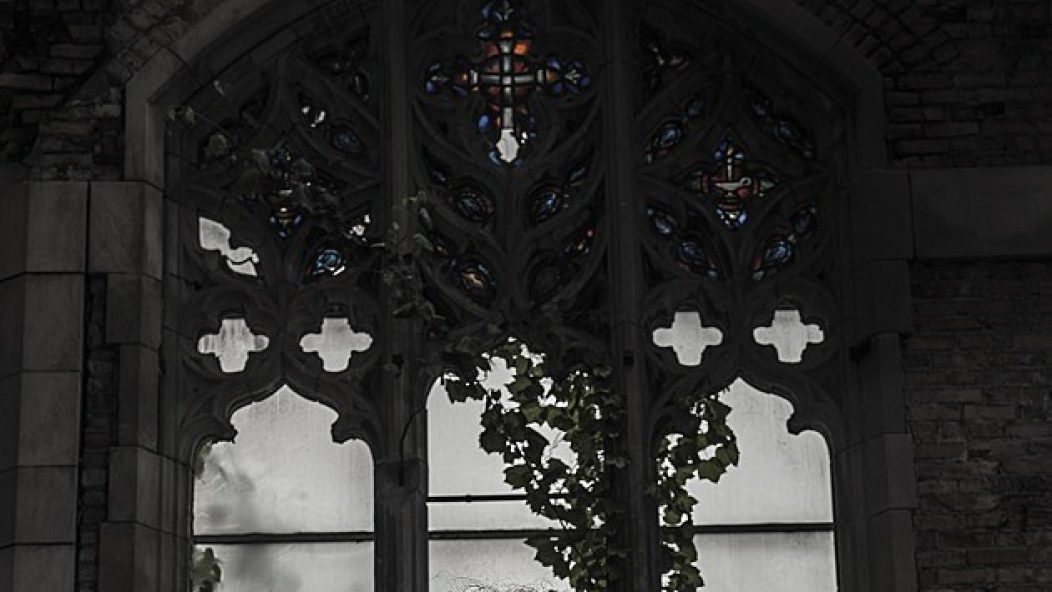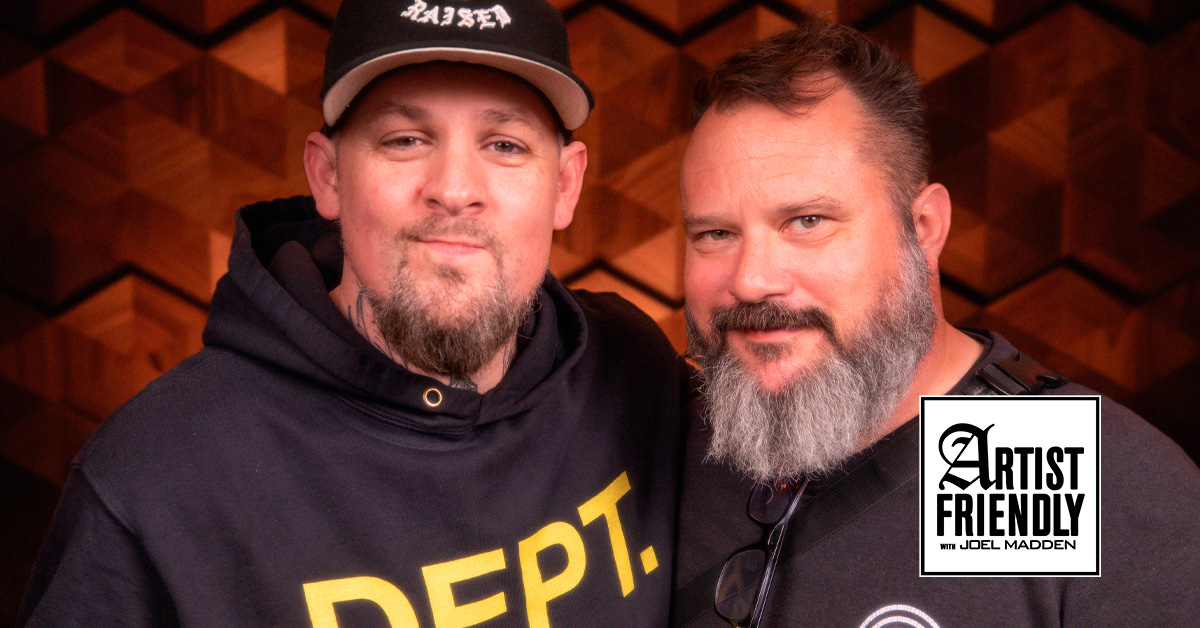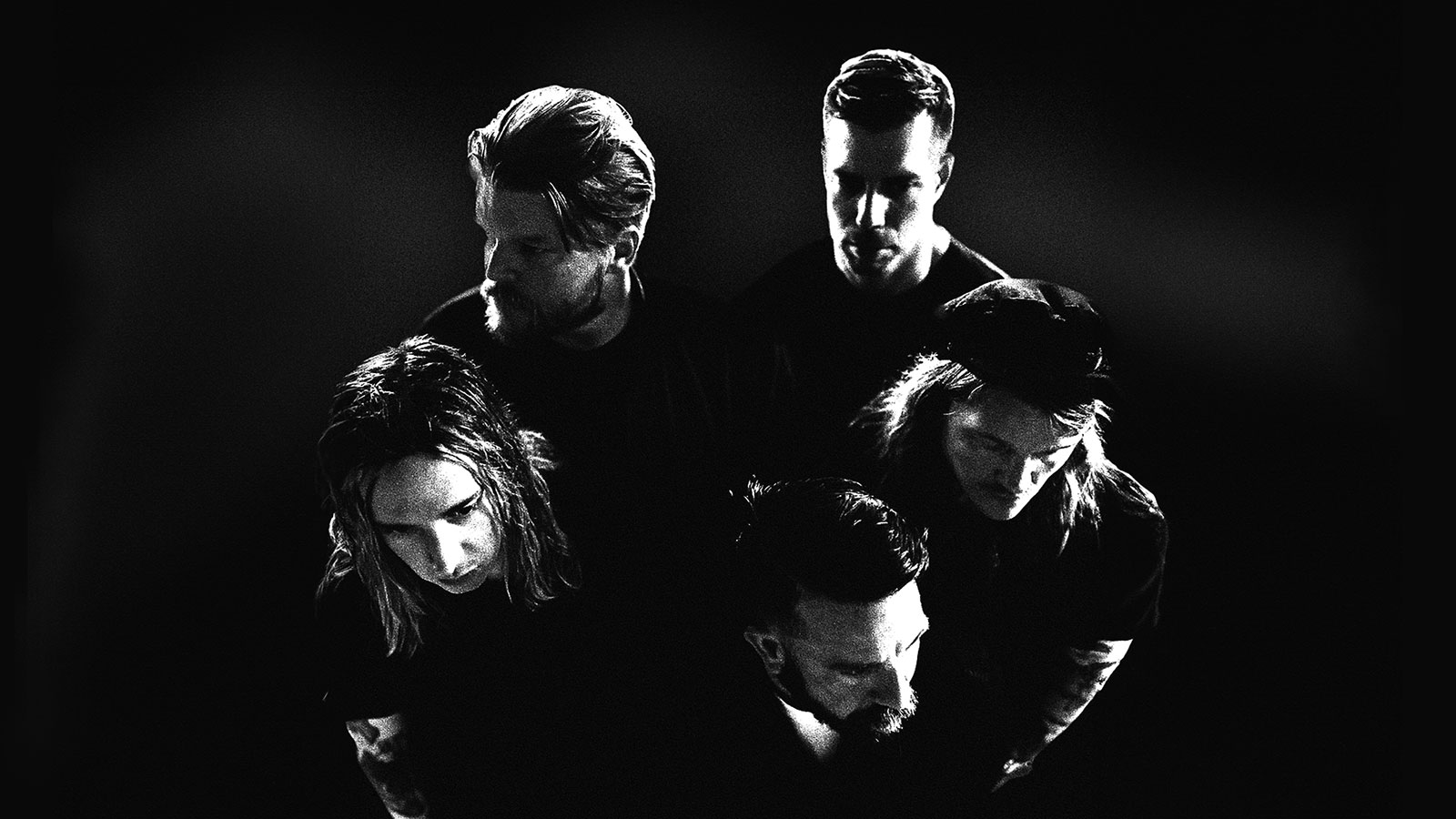
Interview: Erik Rutan (Hate Eternal, Ex-Morbid Angel)
…
Few musicians make better case studies in the value of worth ethic than Erik Rutan. An acclaimed producer and studio engineer, he’s worked on over 80 releases according to Metal Archives. Rutan is also a talented guitarist in his own right, having contributed to some of the most obscure records by Morbid Angel, while at the same time helming his own long-running death metal project, Hate Eternal. Reflective and self-aware, Rutan expounded with us on his tireless schedule, as well as his work with both The Mountain Goats and Morbid Angel, in support his his latest Hate Eternal album, Infernus.
…
…
The press cycle for you has to be grueling, considering you don’t stop producing records even when Hate Eternal is active.
It does get grueling after a while, but the thing is I don’t know. I’ve been doing interviews for such a long time and it’s just like part of the package. It’s part of the routine. I don’t know. You get used to doing it, but it’s time consuming. So that’s where it gets tricky with scheduling like around your own work. Doing interviews around my work schedule is tough because I work odd hours. I work from 2 p.m. to 2 a.m. And a lot of people have day jobs. So I have to do interviews on different times. I think the scheduling is probably the hardest part of the whole interview process more than the actual interviews themselves.
I’m on the west coast and I have a day job, so getting things that work for most people on the east coast is tough considering most people don’t want to do weekends, which are the best times. You’re exactly right.
Yeah, nobody wants to do interviews on a weekend, but that’s the best time for you because you’ve got your day jobs. I don’t know how many journalists out there that do this really do it that don’t have another job. I guess it’s kind of like musicians. Most musicians have some other form of income or some other job that supports them being a musician. Sometimes unfortunately passion and love doesn’t equal dollars and cents. So you gotta do whatever you got to do.
Cheers to that. Your assumptions about most writers are, I think, dead on. The idea is that you’d think that the press would promote the bands, and then the bands would get more money. And as the bands get high profile, that would make things more profitable ad-wise for the press. I’m actually not convinced that it works, or at least that it works anymore. What have you learned in your time as a musician?
I don’t know if anybody knows what works and what doesn’t at the moment, because there’s such a state of flux in the whole music industry of everything. It’s like things have changed dramatically over the last many, many years for sure. And it’s constantly evolving. And, man, even every record I do with Hate Eternal, things change like, “Oh, wow, this magazine went out of business, and that fanzine, that doesn’t exist anymore.” I think everybody’s trying to figure it all out, what works and what doesn’t.
It’s a tough time to be in the music industry. I would say that’s for sure, man. You gotta be thrifty and smart about how you do things and I think it’s harder even for newer bands. It’s easier, like sure maybe with social media and everything it’s easier to get your band out there into the public eye, but to separate yourself from everyone else in the public eye is more useful to establish yourself. With us, we’ve been established a long time. I established my name a long time ago so that helps with putting everything into this kind of gray area where I am now.
If you’re a new band just starting, I think there’s a lot of things working against you. And that’s why I always tell people if you’re gonna play music, you’ve gotta play music under the assumption of you got to really love to do it. I never went into music thinking I was going to make a ton of money or that I was gonna have the like, rich lifestyle or something. I never, ever thought that.
I just kind of thought to myself, “Well, I hope I can somehow scrub together a living, but as long as I’m touring the world and writing music, then I’ll be happy with that.” I came from modest beginnings and that was good enough for me. I think some people sometimes have the wrong perception of the music business, that they’re gonna make a ton of money, then that’s certainly the wrong way to look at things now.
It’s always good to be able to get a veteran’s perspective on this sort of thing. You’re now at the point in your career where at least as a producer where a sticker saying “produced by Erik Rutan” is a selling point.
How wild is that? It’s wild to see an album I produced and then have like a sticker on it or an ad that says, “Produced by Erik Rutan.” It’s very humbling. Look, I did my first album, Ripping Corpse almost 25 years ago at this point, straight out of high school. I went to school for audio engineering not long after that. When I think back from that point to where I am now, it sometimes it doesn’t even compute.
I don’t take these things for granted and I really appreciate everything that happens. The older you get, the more you reflect on things, and you look at everything at face value and say, “Wow, I can’t believe that somehow I was able to not only make a career playing music, but make another career recording music. It’s hard enough to make it in one field of music, let alone two.” So I always feel very grateful.
While we’re on the subject of producing, it’s sort of interesting to me that like the of cult of personality around the producer has now sort of bled into metal where I didn’t really see that before, but now it exists with people like you and I think the other really big example’s probably Kurt Ballou. I know people who will buy, a record just based on if this person produced it. With some people I know that number one, it’s gonna at least sound good and number two, it’s probably a good band.
Well, that’s a good track record. I don’t know Kurt Ballou personally, but I certainly know him as an engineer and a producer. He does a fabulous job. I’m told that he’s very specific in what he does. I know for myself, the more I do this, the more I guess I’ve become similar in the sense that I’m more selective in everything I do. Part of that is because I’ve gotten very involved with these records and it takes up a ton of my life, my time. When I’m producing a record, I’m just totally submerged in it. It’s almost like my whole life is that record, regardless of what band it is.
I’ve realized a long time ago…there was a time when I did 8 to 10 albums a year. I was literally just slowly but surely like a candle burning to the bottom and I realized that if I wanna continue to do this and feel great about everything I do and also not get burnt out and provide the best work… I knew that I had to slow it down a little bit and just really focus on X amount of records a year, no specific number, but just a certain amount of records a year and really being selective.
I can’t work on everything that comes my way. It’s just impossible. So I have to really be smart and still all these years later, my hardest part is balancing being in a band, touring, owning a business, being producer, and of course being a husband, being a son, being an uncle, being a brother and being a good friend. You have to balance all that in your life. It’s a lot to balance. Still sometimes, some years I succeed better than others.
I really try to do the best work I can and work with different bands. I just love music, man. And of course I play death metal—I love metal—but I love other stuff, music too and I’ve been fortunate enough to be able to do a lot of different styles.
I was preparing for this interview yesterday, and I was reminded that you worked with John Darnielle.I pulled the record up at work and listened to it. On the one hand it makes perfect sense because I feel like everyone knows that John Darnielle’s a metal head that doesn’t play metal. That’s now part of his shtick. The more interesting thing is that he picked Erik Rutan.
It surprised the hell out of me when he reached out to me a long time ago.He was a fan of Morbid Angel and a fan of Cannibal Corpse and I guess he saw a video of me in the studio, working with the Cannibal Corpse guys. They did a bunch of documentaries and things years ago when I was working with them.
He said there was something happening in it, where it just caught his eye and it just gave him this idea… “I want to contact Rutan and see if he’s interested in working with us.” It just blew my mind because I thought to myself, “Wow, this is just completely different than anything I’ve ever done before.” At the same time, to be put out of your comfort zone really challenges you in a way.
Sometimes I think to myself, “You know, wow, I really chose some really hard stuff to do on my career book.” But I’m just one of those people that gets bored easily so I want to be challenged. As soon as I’m done with something, I’m always thinking five steps ahead too, that’s just my mentality.
Anyway, when he contacted me, automatically I was so excited because I knew, “Wow, this is gonna be a tremendous challenge for me.” I think we recorded four songs in four days. And a lot of it was live with the whole band and someone was overdubbing. It was very unique [compared[ to anything I’ve done before.
They worked with four different producers for the whole record and one of the songs that I produced was a single and they ended up playing that on “The David Letterman Show.”
…
…
To see my name mentioned in Rolling Stone or Spin because I produced it was this big deal like, “Death metal producer works on Mountain Goats record.”
John took a unique stance on it as well, it was kinda like promoting that so people were wondering, “Are they doing a death metal record?” It was funny… it was really pretty awesome to see this because people tend to get pigeonholed or stereotyped into being only one way. And yes, I am a death metal guy. I’m a metal guy period, but I listen to other forms of music.
My first exposure to music was classical. I’ve listened to tons of stuff. I’ll always be grateful to John for giving me that opportunity to showcase the abilities that I have in a different form, in a different way. And it was a great experience, and John and all those guys were some of the best dudes to play with.
Do you think in your work with other people and your work with Hate Eternal that you’re working towards some sort of single goal?
I use like, football analogies all the time because I feel like as a producer, you’re working with a band. People always talk about “buying into the system” in football.Let’s say the Patriots for example. People buy into Belichick’s system and that’s why the Patriots have been so successful for so many years.
I kinda believe when it comes to recording, being open and honest with everyone and being on the same page is important. But at the same time, people’s different opinions are relevant and important as well.
I always feel like everything should be laid on the table and sometimes, maybe because I’m a northeast guy, or it’s just my personality, but I’m very to the point. I won’t candy coat or beat around the bush. I just kind of call it as I hear or see it and sometimes, depending on the personalities, it can be taken in an abrasive way, but it’s really not meant to be abrasive, as much as it is just to make the best record possible.
Having one goal is important. If you’ve got one guy that’s just like, “Yeah, whatever, good enough,” that’s gonna break up the common goal. To me it is important that everybody’s on the same page as far as the same direction and that’s why I love, most bands that I’m working with—I’m in touch with them for months in advance.
We’re discussing pre-production, and songs, and lyrics and tones. I usually talk to all the individuals in the band, what instruments they play, what tones are they’re looking for, what amps do they play, things like that. What’s the inspiration? What are you looking for? I want to bring out the sound of the band, not necessarily…
They always say just some engineers like, have a signature sound or whatever, but I don’t want to be recognized for that. I want to be recognized as the guy that helps bring out the sound of the band. To me, that is exactly my job: to try to capture the best performances I can from that band, and to capture that band’s sound, not manipulate it to sound like something else or not to influence it in a way that makes it sound like a completely other band.
For example with Cannibal Corpse, if you go see Cannibal Corpse live, it’s just one of the heaviest kind of raw, nasty, in-your-face bands and to me, I always want to bring that out. I want to make this Cannibal Corpse record some of the heaviest shit that I can possibly muster.
What is important is to help separate bands because a lot of productions sound so similar and so kind of sterile with technology and things. We’ve lost a lot of that luster of bands back in the day. And I guess I’m trying to just bridge the gap of modern recording and old school vibes, somewhere in between you know?
It definitely makes recording a lot harder, the way I do things. But at the end of the day I I think the bands that come here are all looking for that same vibe. At the end of the day, I feel good about what we’ve done, and I always know that we did the best we could within that time frame, at the moment in time, and I captured where that band is at.
With Hate Eternal, the new record, I feel like in 2015, that’s exactly where we are and we captured exactly what we were looking for, you know?
What is the core of the Hate Eternal sound? Because you have this insight into Cannibal Corpse, but there’s something a little bit more refined about Hate Eternal to me, than Cannibal Corpse.
Hate Eternal is a unique entity. For, a lot of people I think maybe Hate Eternal goes over their head. It’s too aggressive or too crass or too whatever. But you know, I always feel like with Hate Eternal that really it all stems from one thing. When I’m writing Hate Eternal songs, it’s just coming from the gut, man, from the soul, you know?
I don’t think about wanting to write fast or technical songs. It’s just whatever comes naturally and sometimes they might be really fast and aggressive. Sometimes it might be slower, or really strange, or really odd, or really melodic. I’m a complex person, and when I write music, I write complex music too. I think it’s harder for me to write simpler things than it is for me to write complex, because complex things just come out of me.
I feel like with Hate Eternal I always try to capture like an older kind of vibe that I loved about death metal in the early ’90s, but at the same time trying to, I guess advance it further than where it started.
When it comes to the production aspect of Hate Eternal, at the start, I wanted it to sound like it came out of 1992 or something. You know? Like, I wanted it to have like, a more colde vibe or I guess it just wanted to be raw.
With Infernus, I wanted it to be a little bit more hi-fi, but without the modern stigma. For example, I don’t say this, because people will probably take it the wrong way, but if I had to name my top metal records of all time, they would be Metallica: Ride the Lightning and Master of Puppets.
Absolutely.
Ride the Lightning has like this cold kind of dismal vibe. When Master of Puppets came out it had like a little bit more hi-fi vibe. I’m not saying that Hate Eternal is Metallica by any means, but I am using that in the sense of like the difference between Phoenix and Infernus. We just wanted to make a little bit more dynamic record and I want to expose those dynamics by having a little bit more clarity and more high fidelity.
Well, it also struck me as a bit more immediate, like a little bit hookier than Phoenix. I’m going to be honest with you. Phoenix kinda lost me a little bit. Infernus, I was like with it from “go.” I didn’t feel like there was any sort of intellectual barrier for entry. I can just put it on and listen to it and it works.
Interesting. I never know what people are gonna think about these records, I don’t even try to predict anymore. I’ve always gone with what felt right and I don’t put a lot of stock into anything else. Like, if it feels right, it is right. So much of my life I’ve made major decisions in my life that were gut decisions. I’m fortunate that I have that instinct and I’ve made some major decisions, people thought I was crazy.
When I look back, I’d say [my decisions] were right. They were right because I made gut decisions, with the songwriting, selection and stuff like that. With Infernus, we had more time to work on it, because we needed a new drummer and that really helped create an even better record.
JJ and I wrote probably 15 or 16 songs in different riffs and started narrowing it down. You know, “after two or three months in it, I’m not feeling it anymore…next.”
The songs that are on Infernus, they’re there for a reason, from beginning to end. The one thing that was kinda felt out was just the structuring of the songs, the flow of the whole record beginning to end, the flow of a vinyl, side A, side B.
The response on Infernus has been way beyond what I possibly could have fathomed. The record came out yesterday and the fans that have bought the different vinyl and the packaging. I’ve never had such a positive response to any of the Hate Eternal records like I have for Infernus right then, in all the 16 years of releasing records. It’s by far been the most, the best received, certainly from our fan base. And to me the fans, that’s where it’s all at man. You know, if the fans don’t give a shit, then you’re gonna be sitting in your room, playing to yourself and having a good time. But really, the fans are what help keeps this whole thing going to me.
I’ve made so many friends over the years by touring, and supporters are so loyal, man. I’m always gonna be loyal back to them; always gonna give them my best and if I can’t give my best, then I wouldn’t do it at all.
Earlier you said that you’d made some gut decisions that people thought you were crazy for at the time. What was one of those?
Well certainly, when I left Morbid Angel in 2002, part of me thought I was crazy too. “What the hell are you doing?” But my gut at the time, I had Conquering the Throne. I had one record. My studio was in a storage facility, about 700 square foot, maybe even less square foot studio.
The last two tours I did with Morbid Angel, I think, were Pantera and Slayer, playing arenas, and then main support for Motorhead. So when I left Morbid Angel, I wasn’t leaving to greener pastures, I was just leaving because in my gut I just felt that I knew that I couldn’t do, and I was doing Hate Eternal, and Morbid Angel, and studio and I had another project. I think I did four records in three years or something and then on top of it everything else. I knew in my gut that in order for me to get Hate Eternal where I wanted to and to also get my producing career where I wanted to, I had to leave Morbid. It was one of the hardest decisions in my life, because I love Morbid Angel still to this day.
If I could clone myself, I’d still be in Morbid Angel. I’ll always be loyal to Morbid Angel and I’ve learned so much and it was an incredible experience to play with them. I toured with them for four albums. I played on three. And it was some of the best times of my life and I knew deep inside that I just wanted to take a risk. I took many risks.
…
…
When I first tried out for Morbid Angel, I came down here and they wanted me to do a tour and then I just decided, you know what, I’m gonna pack up the car and drive to Florida from Jersey and live in my friend’s apartment. And if I’m down here, it’ll increase my chances of them wanting me to make me a member and that’s exactly how it worked.
And to me leaving Morbid Angel was certainly one of the riskier decisions I made but, and it was tough in the beginning. There’s no doubt about it, man. I went from touring on a bus, playing arenas, to sleeping on the cabinet in the van, making 100 bucks a night, so you know, it definitely was… most people don’t make those decisions and just stay safe, but, I don’t do the safe thing. I take big risks and those big risks have paid off for me. When I left Morbid, I left in a respectful way. I’m still great friends with Trey, and David, and Pete, and Steve and of course they helped me advance. I fulfilled all my obligations and did all the tours, and I even went back and helped them on a tour many years ago, and I would help them any day of the week, forever.
But it was one of those decisions that I just, in my gut felt like I needed to make. But it was taking a big gamble, but that gamble paid off, you know. When I look at what I’m doing now. I’ve done more honestly than I could’ve asked for.
I mean, I’ve had so many great bands come to work with me and taken a chance on me and it was one of those big chances that paid off that at the time people thought, “Man, what the hell you doing?”
Well you certainly, in a way the decision you made was sort of forward thinking, right, because everyone left Morbid Angel.
Well I mean, that’s just one thing about being in the band, and this is learned through the years of having to have line-up changes and things like that in Hate Eternal—everybody views things differently, man. And you know, everyone has a different opinion on where they want to be in their life and I always say, “Life gets in the way of life sometimes, man.”
You know, family things happen, tragic things happen to people. People just change. People grow, and they decide to move on and do different things in their career and I totally get that.
Some of my earliest memories of life are sitting on the stool with my sister playing piano, and my grandmother played piano as well.
I played violin as early as I can remember five or six years old maybe, I think I was playing violin. I kinda grew in a musical environment and I think that kind of inspired me. When I became a teenager and started to play the guitar, music wasn’t just like a hobby. It wasn’t something, “Oh, after school I’ll do like, weekend gigs.” For me I was like was my life’s blood.
I had a lot of tumultuous times in my life as a child and as a kid and then a lot of hard times. And for me, playing guitar, it gave me an out of, to put all this negativity and all this stuff I had going on and to put it somewhere.
Before guitar, I was putting it in the wrong places, man. You know I was just troubled for sure and when I found guitar, I was able to use that as a vessel to express all this negativity and put it into something positive and I just never looked back.
That’s been almost 30 years now that I’ve been playing guitar. I just looked at this guitar as like my savior; music has been like my spiritual guidance in the sense that it gave me something to motivate me and look forward to. And I used that as a vessel to express everything I do.
To some people, music is different for them, you know. But for me music…it’s hard for me to even imagine not being involved in music, because sometimes I do, I think to myself, “Well, what the hell would I do if I decided to do something else? Like what would I do at this point, you know?”
I feel like I’ve established myself pretty well in the genre of music that I’ve been involved in and through a lot of hard work and dedication and never stopping. I feel like if I put my mind to something. And I feel this way about anybody. If you just put your mind to something, you really can achieve it. You just gotta stick with it.
And I always think about like, “What would I do?” And then it always comes back to music. I mean everything, my whole life is surrounded with music and it’s hard for me to imagine not doing music, but everybody’s different, man. Everybody’s different and I’ve learned having a band is one of the most difficult things in life, man because you have all these personalities.
And just like producing bands, you’ve got to know everybody’s individual personality and the collective goal as well as the individuals. It’s all a big challenge, but at the end of the day, everybody has a different vision of what they want to do with their life and then people change, but I guess for me, I just still love music so damn much. It’s hard for me to imagine not doing it.
That’s one hell of an answer.
Music is special, man. I always want to just leave a legacy. What am I going to leave behind when I’m said and done, and I think I just want to be recognized. Since I was a teenager. I just said, “Man, someday I will be that guy that’s touring the world, and doing records, and has his own studio that he can do his own records. And then produce some of my friends’ bands and things like that.” Certainly my modest wants expanded tenfold when I look at what I’ve been able to be fortunate enough to do for my 25-year career.
When I turned 40 a couple of years ago and I know people always say like, “When you turn 40 it’s like a midlife crisis,” blah, blah, blah. But I remember turning 40 and looking back and saying, “Wow okay, well for over half my life I’ve been doing everything that I always dreamed of and if anything it was like the first time for some reason I was able to reflect.
I’m such a perfectionist. I’m a workaholic and always feel like everything could be better. For some reason when I turned 40, it was like the first time I’d actually looked back on my career, and my life and finally acknowledge, “All right dude, you got a lot more to do, but you’ve done pretty good for yourself man. Give yourself a half a pat and then get back to work.”
…











